Disability Pride Month and People First Language
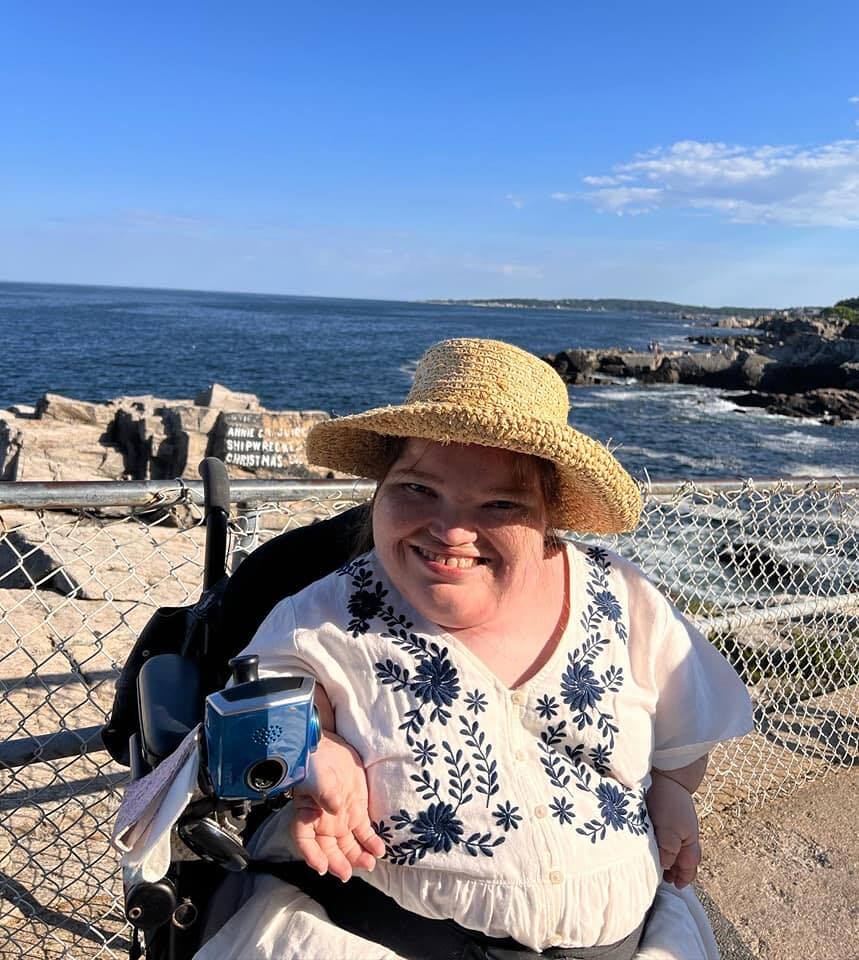
This article was written by Catherine Sokol, WTW blog contributor, travel enthusiast, and budding disability advocate.
Happy Disability Pride Month! This is a month where we, as people with disabilities, can celebrate what makes us unique and what gives us a different perspective on the world. Usually, these differences are viewed as something negative and seen as a burden, so it is nice to have a period of time dedicated to celebrating them and promoting understanding.
What is Disability Pride Month?
According to the American Bar Association, “Disability Pride Month celebrates disabled persons embracing their disabilities as integral parts of who they are, reclaiming visibility in public and interacting fully with their disabilities out in the open, and rejecting shame and internalized ableism.” This is a month dedicated to celebrating each other and what makes us unique. People with disabilities are the only minority group anyone can join at any time. I think that disabilities should be acknowledged and embraced and not treated as something to be ashamed of.
"This is a month dedicated to celebrating each other and what makes us unique."
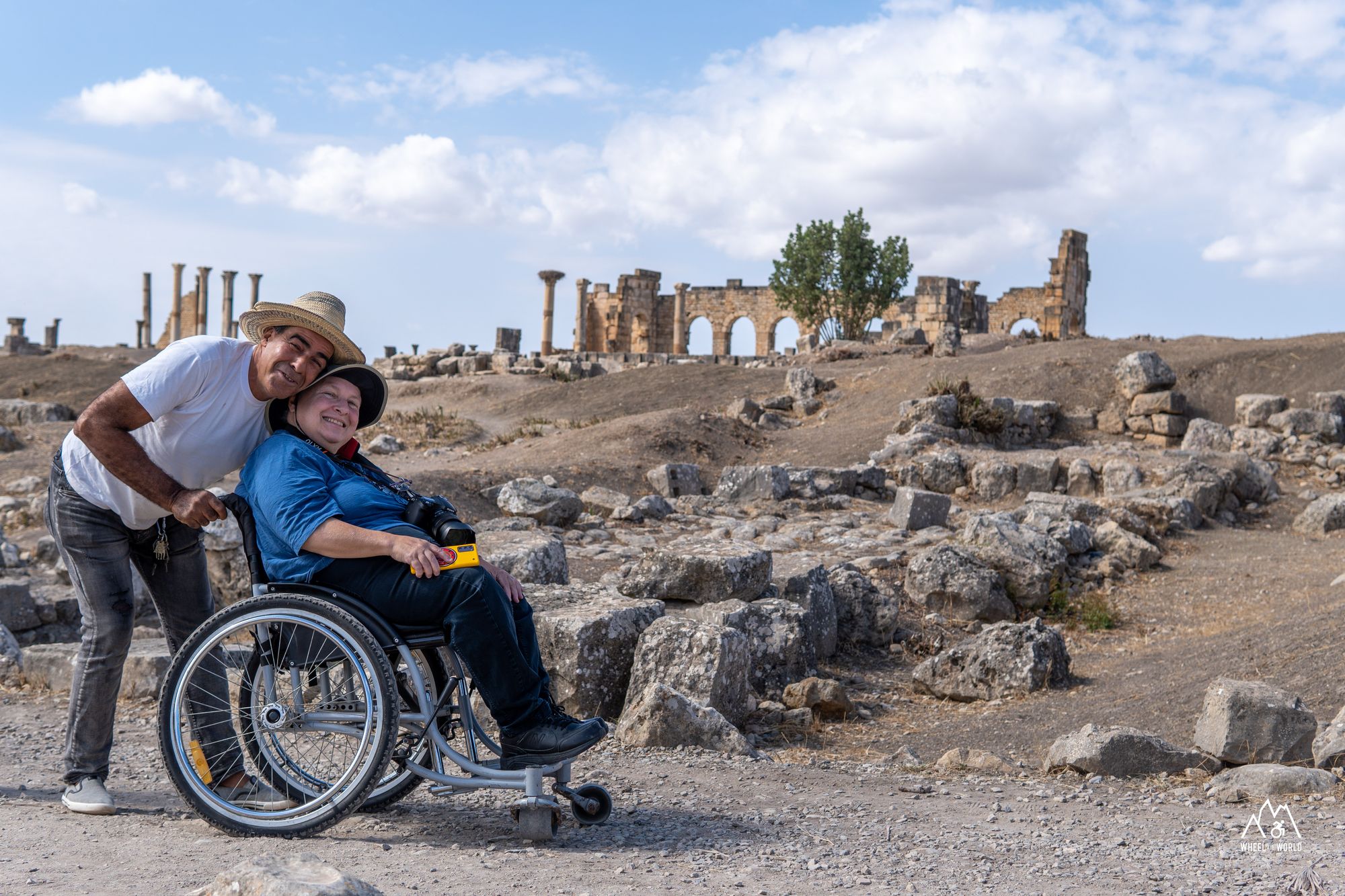
I have a rare type of dwarfism known as Metatropic Dysplasia, and as a result, I am unable to walk and use a motorized wheelchair to get around. I have a heightened awareness for noticing when there are no ramps or elevators to get into a building. Not everyone has this perspective, but it is very important to me. Some people see me solely as a disabled person, but I am so much more than that. My disability is a large part of who I am, for sure, but it doesn’t define me. People tend to have trouble seeing past my disability until they get to know me. I want to help change that perspective and end the snap assumptions that get made about people with disabilities.
One way to help change that perspective is by addressing the language used to describe those things. By being mindful of how we describe disabilities, we can impact how they are viewed by the able-bodied community. As an example, instead of saying I am “wheelchair bound,” I instead say I am a “wheelchair user.” Saying ‘bound’ connotes a negative thought and makes you think of being stuck when, in reality, my wheelchair is my ticket to independence and is a really positive thing. My wheelchair is what allows me to hang out with friends, hold a job, and just live my life. It is the equivalent of an able-bodied person walking around. Using a wheelchair to get around instead of walking doesn’t make me any less of a person. I have learned throughout my life that I do not need to be embarrassed for needing tools to help me be independent.
What is People First Language?
A big topic regarding language in the disability community is what is called ‘People First Language', or person first language. According to the Office of Disability Rights, “People First Language” (PFL) puts the person before the disability and describes what a person has, not who a person is.” An example of doing this is using the phrase ‘person with a disability’ instead of just ‘disabled’ to describe someone. It is simply just addressing the individual first before addressing their disability. In doing this, you are remembering the individual in question is a person outside of their disability and not just defining them by their physical features. It seems so simple, but switching to using PFL can help people remember that people with disabilities are, at the end of the day, people as well, and should not be defined by their physical challenges any more than an able-bodied person should be.
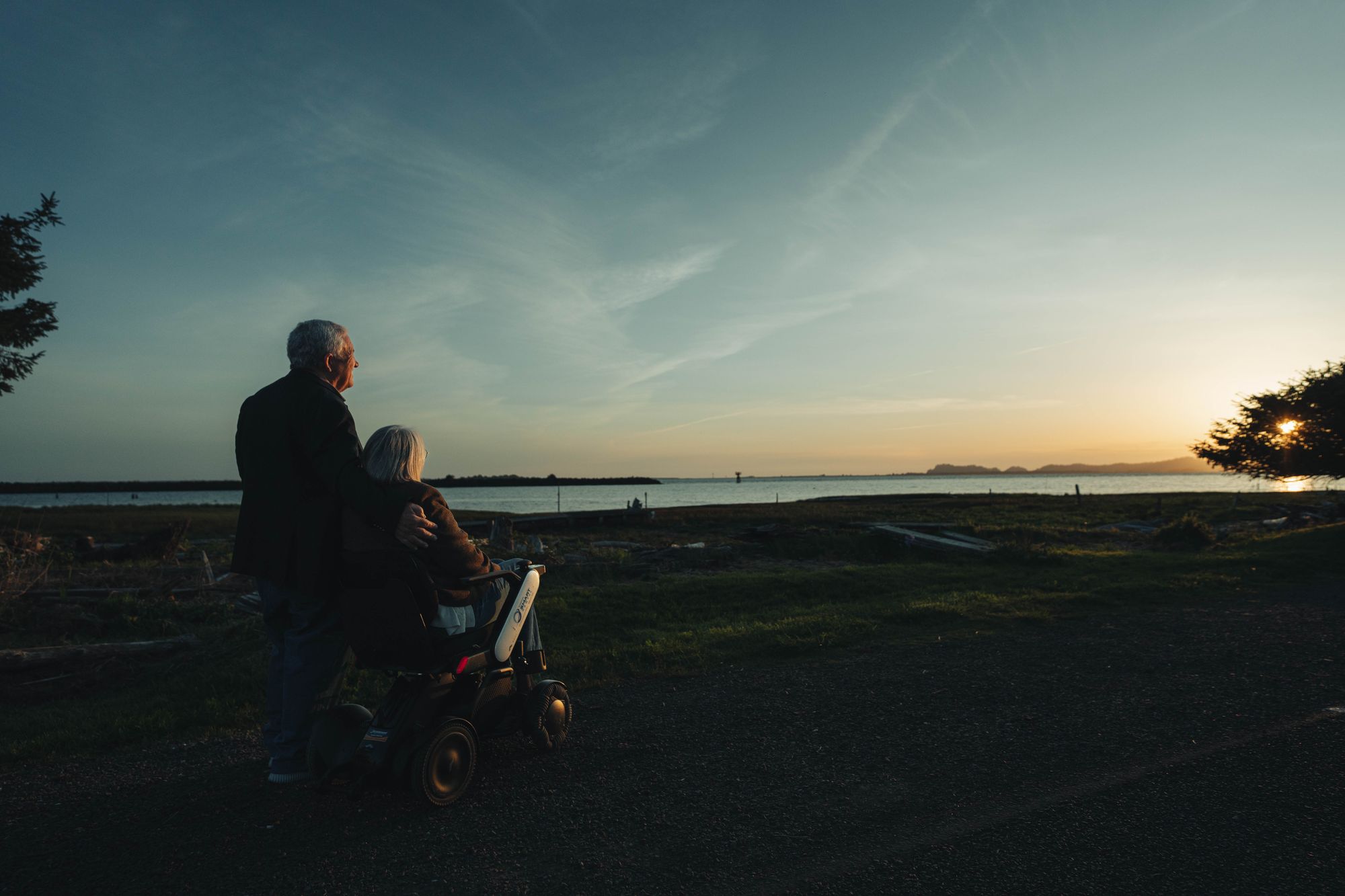
An Example of People First Language
To give an example, my family and I just finished watching The Good Doctor (which is a fantastic show, and I highly recommend it). The show follows Shaun Murphy, who has autism, through his surgical residency and highlights his challenges and triumphs. Shaun has to prove to his superiors and peers that he can overcome the challenges that accompany his diagnosis, but never once does he accept that his diagnosis will limit him. At several points during the show, people wanted to highlight his autism, show how well he is doing, and use him as a sort of inspiration porn (that, my friends, is a whole topic for another time). In response to this, Shaun says that he “wants to be known as a good doctor, not a good autistic doctor.” That is People First Language in action because Shaun wants to be known as Doctor Murphy first and not as the autistic doctor. This desire is true for all individuals with disabilities; we want to be known for our skills and achievements and what makes us, us and not our disabilities.
The Importance of People First Language
Using PFL allows people with disabilities to be seen as valuable members of their communities and not someone to be hidden away and ashamed of. The subtle shift in language can subconsciously change how able-bodied individuals think of people with disabilities and can therefore be beneficial in making the world more accessible for us.
Changes are more likely to be put in place and supported for people who are considered to be members of peer groups and seen as equals. In turn, those changes can give people with disabilities opportunities to live productive and fulfilling lives that they weren’t offered 30 years ago.
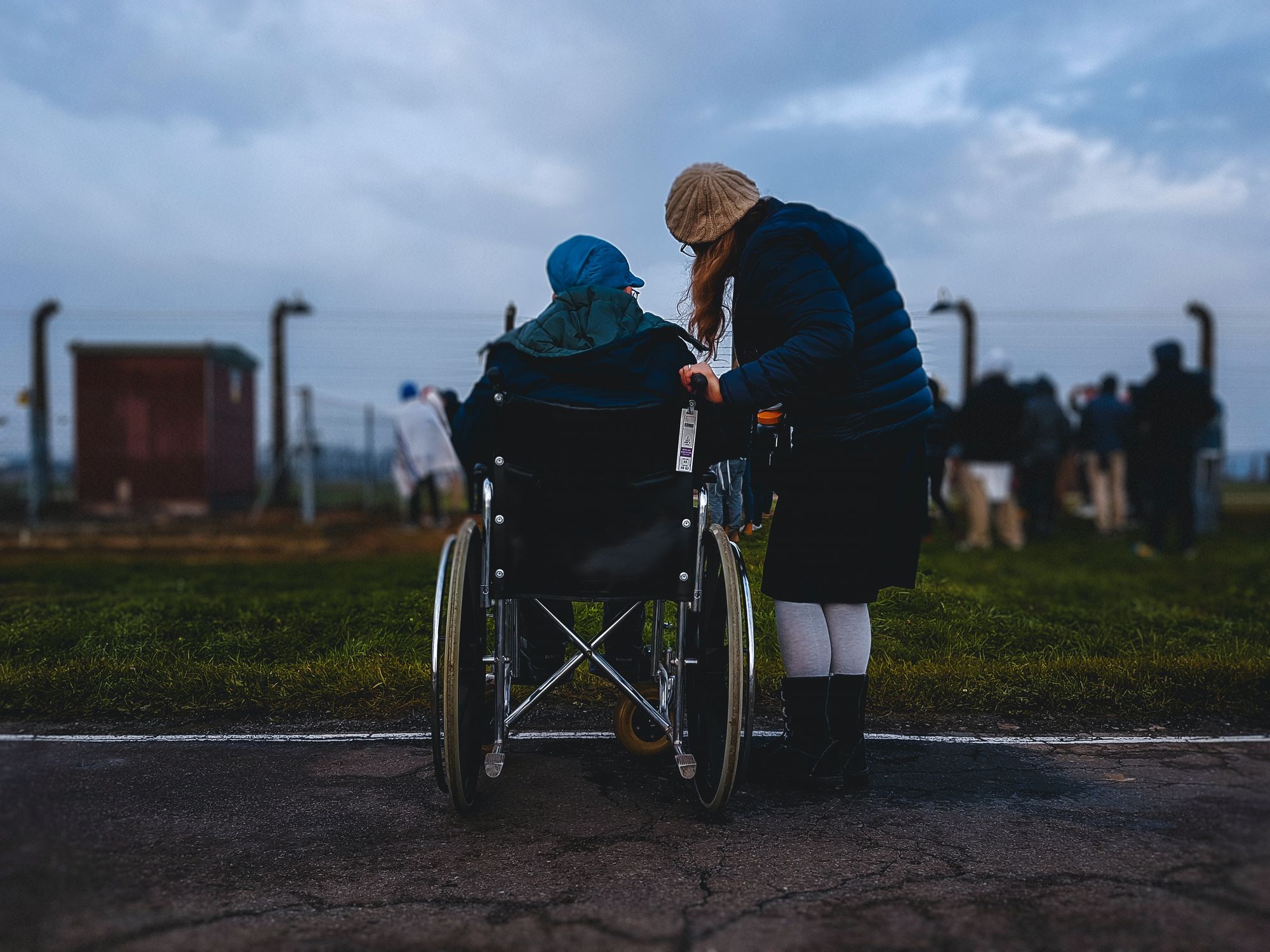
By living a productive life and by contributing to their communities, people who have disabilities are helping to end the stigma that surrounds having a disability. They are helping to show that having a disability doesn’t mean your life has to end or won’t be full of joy. Yes, it might have additional challenges, but it will still be wonderful. And by remembering that a person with disabilities is, first and foremost, a human being, they can be seen for who they are, not what they can’t do.
If you or someone you know has a disability, can you comment below a fun fact about them? I hope that reading them makes us realize that we are all people first.
Accessible Travel Starts Here
Wheel the World gathers detailed measurements, information, and data for each accommodation to ensure guaranteed accessibility with each stay.
Join our Accessible Travel Facebook Group
A community of over 4,500 members where you can discuss accessible travel, share tips, advice, and meet other travelers.

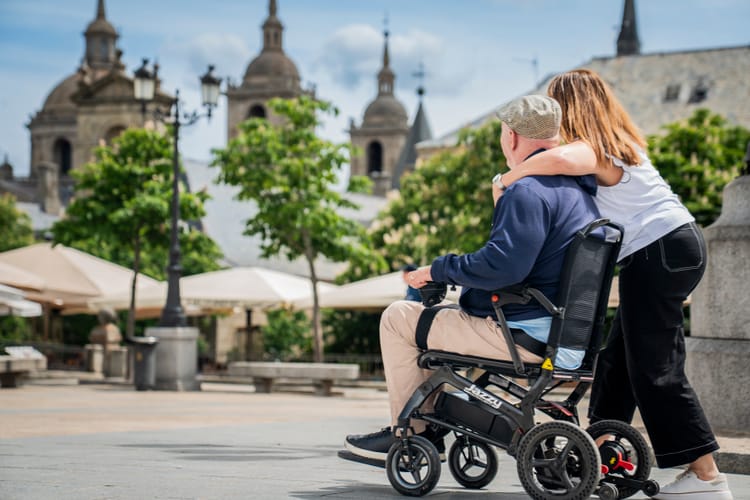
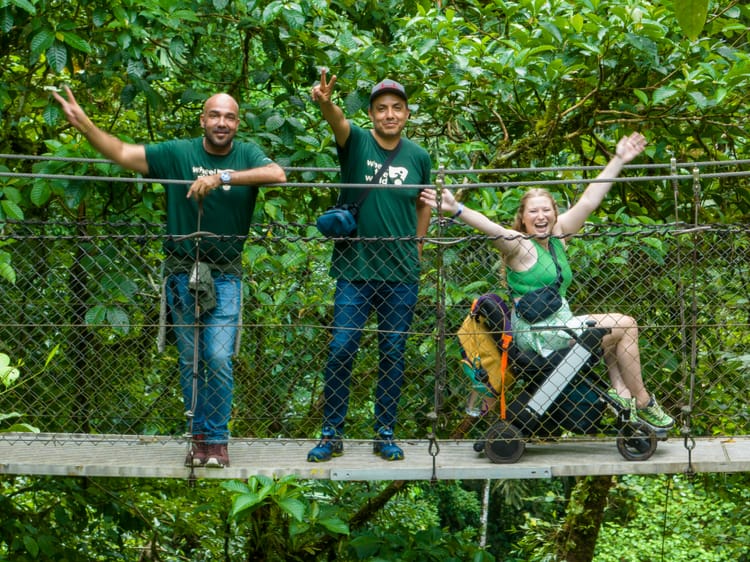
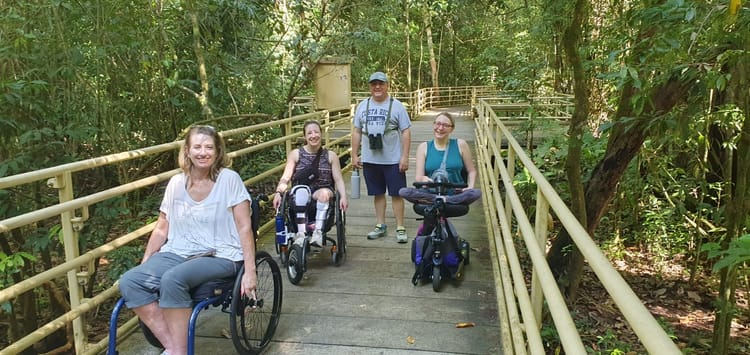
Comments ()